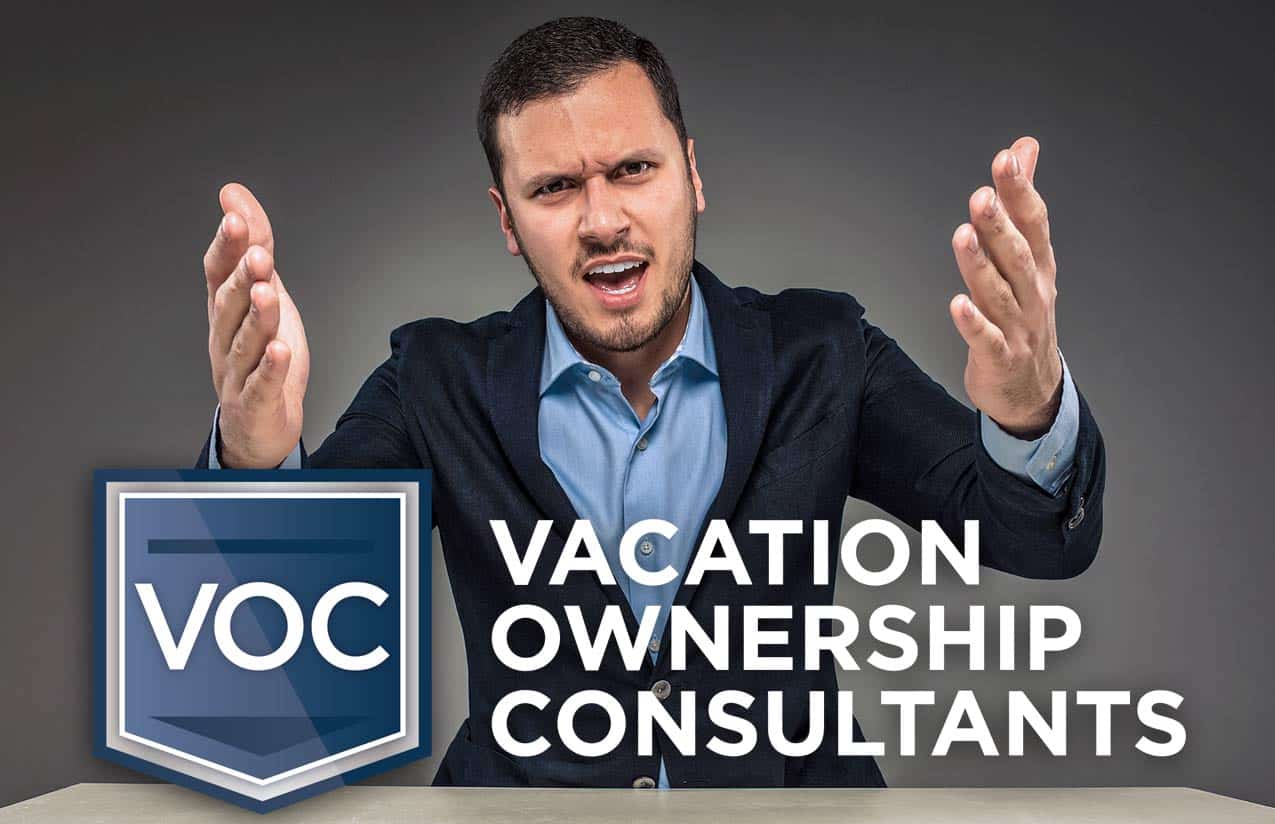Consumers that have come to hate a timeshare purchase often initially wonder how timeshare companies remain in business. But they don’t have to think long or hard to realize their disgust is rooted in an unfavorable contract with obligations that aren’t easy to get out of. This in itself should help you clearly understand why timeshare revenues increase despite a high number of online complaints.
The effectiveness of the initial sale can be crippling, so to speak.
Timeshares Collect Payments Despite Disapproval.
Many buyers turn bitter after feeling they were lied to, swindled or singled out by sales teams. But stubbornness is rarely fruitful as an owner. Others begin to feel guilty as if they made a mistake – even if they were misled. Sadly, unhappy buyers tend to make things worse for themselves. Trying to work things out with the resort or turning to the exit industry for help often opens them up to further deceit.
This usually leads to increased costs and higher susceptibility to fraud. Every year, consumer protection bureaus publicly report that thousands of vacation owners are dissatisfied with the timeshare product. Several Attorney General’s offices have even brought class actions against timeshare giants due to an increasing number of complaints. There’s no doubt there’s a bigger problem here than meets the eye.
So why do organizations like ARDA choose to publish information that states timeshares are increasing their sales volume? One article actually boasts a 26% sales increase in 2013-2018 for the industry. If more sales eventually lead to more complaints, shouldn’t there be some sort of investigation into the way timeshares are sold?
Sales Promises and Travel Possibilities Constantly Mislead Consumers.
No matter the level of disapproval, timeshare revenues increase because of the possibilities of ownership. This almost always appeals to uninformed consumers and “solutions” for disgruntled owners. If they knew the actualities of the deal, they may not have signed the contract or upgraded the product. But we’re not here to explain how people fall for deals, rather how their emotions are used against them.
Resort developers don’t focus on dissatisfaction. They focus on the other feelings that consumers have. In order to help you understand how timeshares are able to milk this strategy, we’ve broken down the appeal of the sales pitch into 3 categories. After reading this article, you’ll see why people make the purchase and how similar ploys may continue to deceive them throughout their ownership experience.

1. The Timeshare Product is an Affordable Option.
When most people first come in contact with a timeshare presentation, they’re often blown away. This is because nearly all timeshare earnings are funneled into the sale. They want you to not only believe you’ll be treated like a king but you’re obtaining the deal of a lifetime that you can’t pass up. This in itself often closes uninformed or gullible consumers rather quickly.
At the end of the day, who doesn’t want to take their family on the types of vacations they deserve? When they’re led to believe they can go on vacation for an affordable amount every year, it can be like Christmas. While those monthly payments of $200 may seem obtainable, it’s not that simple. Most sales presentations are geared towards minimal disclosure. This means oftentimes they don’t cover the fine print.
In most cases, they don’t even allow prospects to review contracts either. If they did, then they’d find out the $21K sales price is actually around $44K at maturity (over 10 years). Not to mention maintenance fees, taxes and special assessments. For those unaware, the baggage of the purchase can be extremely heavy, if you know what we mean. These things are almost always perpetual and continue even after the balance is paid off.
Timeshares Are Not Affordable Travel Options.
What happens when you’re obligated to make payments in the middle of a life change or hardship, like a pandemic? What happens when you can book the same trip on a retail travel site for half the price? Is affordability still a benefit then? This ploy continues helping timeshare revenues increase. If buyers actually stopped to analyze the purchase, they’d be astonished at what they were led to believe.
If someone booked a room at your timeshare for a week at $1,050, it would still be less than most annual maintenance costs. Without going into too much detail about numbers here, you can probably catch our drift. It’s a lot cheaper to save $1500 for a vacation. After adding up monthly mortgage payments, third party financing, interest rates and annual fees, many owners pay over $6K per year.
Trapped Owners Often Take the Deal Bait
Over the past year, millions of vacation owners haven’t even been able to use the product due to travel restrictions and shutdowns. In turn, many have looked to double up their points for future vacations or even upgrade to obtain local accommodations. At this point, affordability is the least of their concerns. They just want something in return. Unfortunately, this could further devastate them financially.
While $21k is an average sales price, there are owners that get upsold into $300k – $400k mortgages while living on a fixed income. Those that are extremely gullible often fall for luxurious (in appearance) packages for “only a fraction more”. They’re sold on the same pretense of “once in a lifetime” affordability that almost never transpires.
Many continue to dig themselves a hole until they’re in too far over their head. Some even pull out second or reverse mortgages on their homes to cover the timeshare cost. Despite the widespread devastation, timeshare revenues increase while more contracts are sold.

2. Tours Of Grand Suites Keep Buyers Hooked.
The next strategy that timeshares almost always use to maximize profits is the constant “dangled carrot”. In other words, there always seems to be an intriguing, luxurious option right at the consumer’s fingertips. Those that are skeptical during sales demonstrations are normally shown a grand suite at the hosting resort. This tends to get their attention.
Instead of pitching the suite as a possibility of ownership, sales teams let attendees believe the tour is comparable to the package they’re being sold. Because of this, people end up making a hasty decision without asking much more. Especially when they think the grand suite is a part of such a sweet deal.
Dream Vacations May Still Be Out of Reach.
Far too many buyers anticipate vacationing like rock stars only to find out the agreement they signed is for a run-down sister resort with 3 star accommodations – and a fraction of the glitz and glam. Talk about a regretful reality. Truth be told, timeshare owners rarely gain access to the grand suite lifestyle. Premium lodging is normally set aside for high paying retail guests or very important people – like resort stakeholders.
The sad element of this reality is, many buyers end up spending more just to obtain what they were originally promised. By the time they figure out they can’t easily cancel the contract or even get rid of the timeshare, many become desperate to make it worth their while. Those that made the purchase with expectations are often forced to book vacations at other resorts just to accommodate their needs.
Do Disappointing Timeshares Still Have Potential?
It’s sad to know timeshare revenues increase while owners’ obligations and bank accounts are taken advantage of. A recent client of ours told us he’s cancelling his timeshare because he was offered unacceptable lodging during his first reservation. His Las Vegas resort was so embarrassing that he wouldn’t even let his family stay. Since the vacation was already underway, they had to book another hotel on the strip.
Another client told us they were immediately captivated by the multi-family oceanfront suites they toured during the presentation. But the unit they received had a view of a vacant parking lot and holes in the walls. Unfortunately, exaggerated truth is common in the industry – and the “dangled carrots” or shiny objects almost never cease after you sign the dotted line.
The Opportunities and Possibilities Never End.
Throughout the ownership experience, buyers are constantly bombarded with “can’t miss” offers and upgraded escapes that are nothing more than a mirage. No matter how much potential you think the package may have, access to grand suites may be nothing more than wishful thinking. It’s sad. While timeshare revenues increase, most people wish they would have cancelled early on in the process.

3. Unlimited Inventory Is Extremely Misleading.
One of the most famous timeshare gifts that keeps on giving, is the idea of endless inventory. In other words, consumers end up making the purchase because they think they can travel any and everywhere at any point during the year. But this simply isn’t true. As a matter of fact, availability is extremely limited – especially if your package is a cheap one. No matter what sales teams spew, guaranteed availability is nonsense unless it’s in your contract.
When owners figure this out for the first time, many immediately look to improve their inventory selection through upgrade or points programs. Others look to exchange their current product. This is where the deceitful “exchange book” pitch comes into play. The book, which may be digital now, displays any and all inventory on the exchange market.
Don’t Get Too Excited About Timeshare Exchanges.
This market involves a number of third party platforms (such as RCI, II, SFX, etc..) that require additional fees to exchange. Almost every exchange program is a part of the initial sales pitch to persuade people that availability is more robust than it actually is. Upon further investigation, you’ll find it’s just another revenue for the timeshare industry.
In other words, the trading is horizontal, not vertical. If you unknowingly buy an undesirable ownership and want to process an exchange, you will not receive an upgrade due to dissatisfaction. While this is pitched as a product benefit, renewal ($150/yr average) and transfer fees (about $300) also come with the “add-on”.
Waiting On A Better Experience Can Be Hopeless.
Many owners don’t even know they’re being charged for the switch until after the transaction is complete. They think it’s included in their affordable package. Unfortunately, most receive inferior accomodations in return. When owners are sold low level ownership, it has little to no trading power.
If they’re continuously exchanging the product, they’re slowly downgrading their experience while former lodging is sold to the highest bidder. If you’re not satisfied with the initial unexpected amenities, then you’re not going to be given something better. You cannot expect sales teams to tell you this on the front end.

Stop Helping Timeshare Revenues Increase.
As a timeshare owner, you may feel as though all hope is lost. But after reviewing some of these tactics, you should know the experience may never get better unless more money is spent. Just remember, this isn’t an investment that you can hang your hat on – it’s a liability. How long will you watch timeshare revenues increase while your savings remain barren?
At the end of the day, not all vacation owners have high disapproval ratings. But many do. If you’re struggling to make payments or even use the timeshare, there is hope. You just have to find someone that can point you in the right direction. Otherwise, you may find yourself trapped in a sales cycle of insanity.
To learn more about our attorney based process, you can schedule a free consultation or fill out an eligibility form below.






